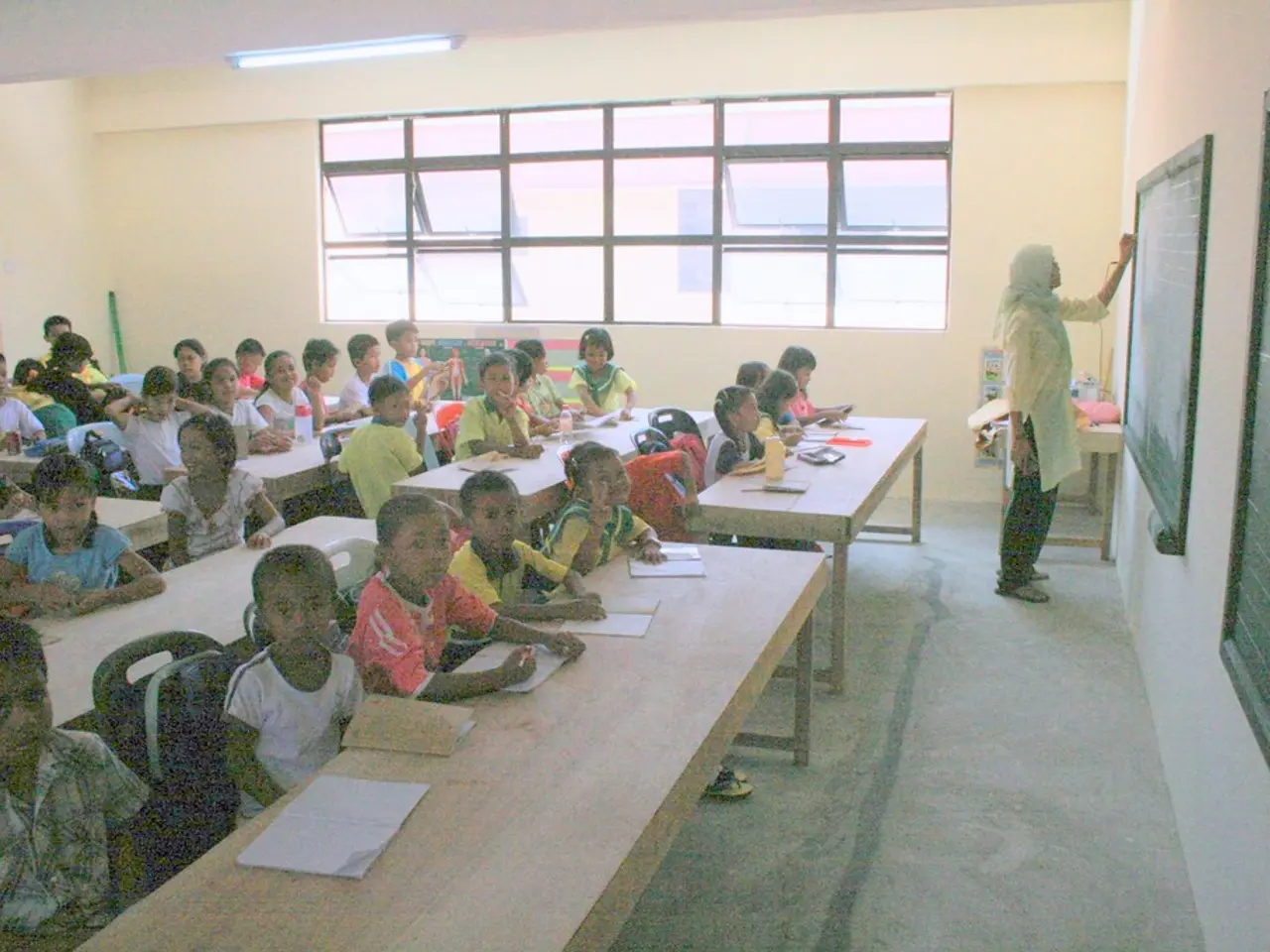Multiple fourth-graders in the high school setting find themselves excluded from internet access.
Let's chat about the education crisis facing Germany's primary school system
Now, here's the skinny: Education expert Olaf Köller is sounding the alarm bells, claiming that roughly 200,000 fourth-graders across Germany aren't prepared for the leap to secondary school. In his words, "the large group of low-performing kids remains a cause for concern."
Köller is reacting to the latest TIMSS study, which paints a pretty grim picture. No kidding—25% of students are struggling with mathematics, and an even higher 27% are having trouble with natural sciences. In terms of cold, hard numbers, we're talking about 200,000 fourth-graders nationwide every year who may find themselves floundering once they transition to secondary school.
So, what gives? Why haven't the folks running the system been able to get a handle on this problem? Köller points the finger at a lack of effective structures and programs to help address this issue. He claims that, despite decades, the proportion of under-achieving students has remained frustratingly constant.
As for what's being done about it? Well, it's complicated. But at a high level, efforts are being made in four key areas:
- Sprucing up teacher professional practices: Research suggests that improving math teachers' skills and instructional quality is crucial to helping students succeed. After years of lackluster results in TIMSS and PISA assessments, educators are being encouraged to up their game and inspire their students.
- Simplifying the lingo in math tasks: Studies show that the language complexity of real-world math problems affects students' performance. The powers that be are working to adapt teaching materials to make mathematical problems clearer and more accessible for young learners, which should help improve their comprehension and problem-solving skills.
- Targeted interventions at the school and student levels: Investigations into factors influencing achievement have led to targeted interventions designed to improve school environments and provide custom support for individual students in reading, mathematics, and science.
- Keep participating in international assessments: Germany continues to take part in international assessments like TIMSS and PISA to keep a close eye on student achievement and identify weaknesses. Feedback from these evaluations helps shape education policies and reforms aimed at strengthening foundational skills in math and science among the country's younger students.
So there you have it—a multi-pronged approach addressing pedagogy, curriculum accessibility, teacher training, and data-driven policymaking to tackle the challenges that the TIMSS results and experts like Köller have identified. It's a tough nut to crack, but progress is being made, slow and steady. Keep those fingers crossed!
Other areas for improvement in education-and-self-development include personal-growth and learning, as the concern of under-achieving students persists in Germany's primary school system. Current efforts aim to improve teacher professional practices, simplify math tasks language, implement targeted interventions at school and student levels, and continue participating in international assessments for feedback and policy shaping.








